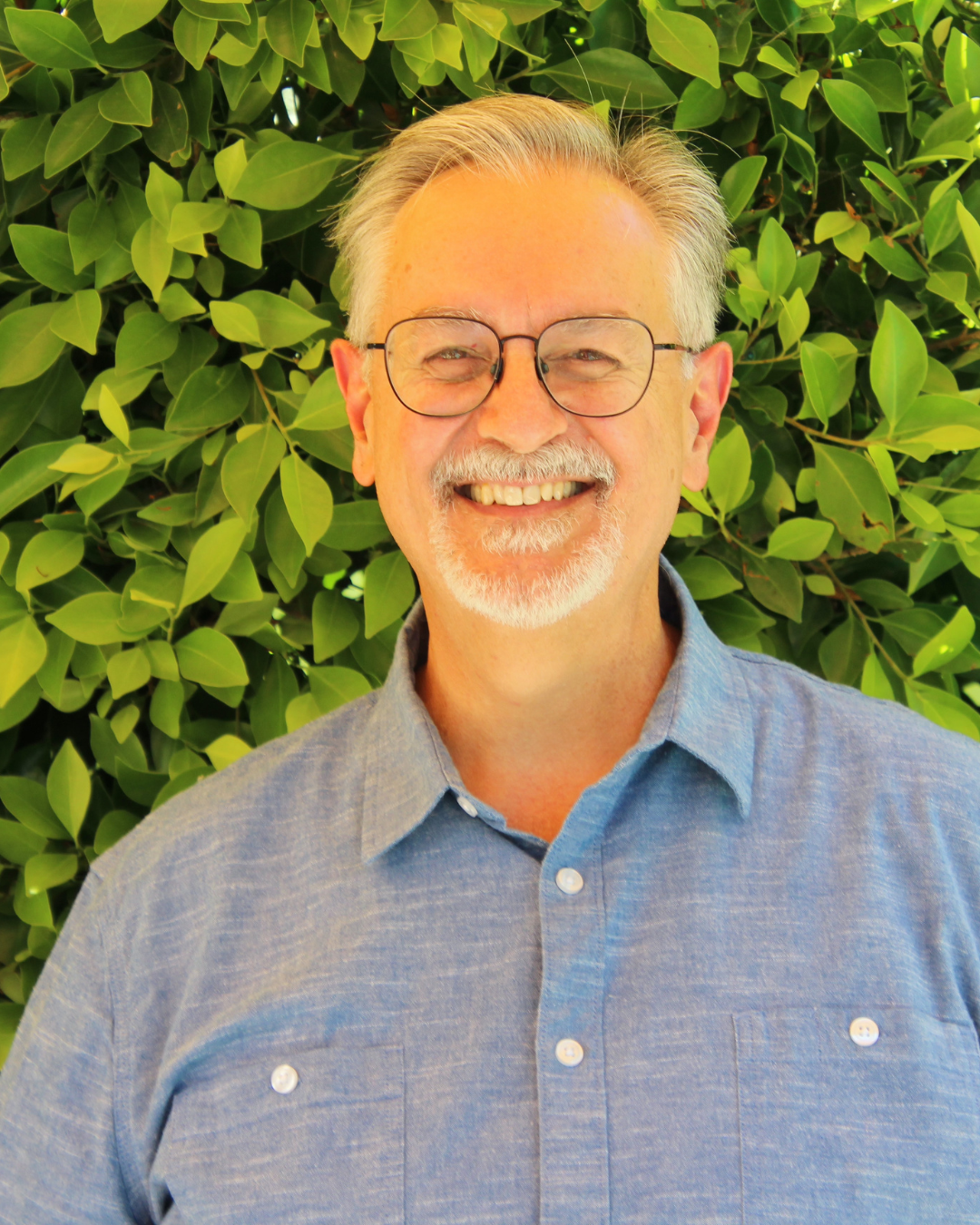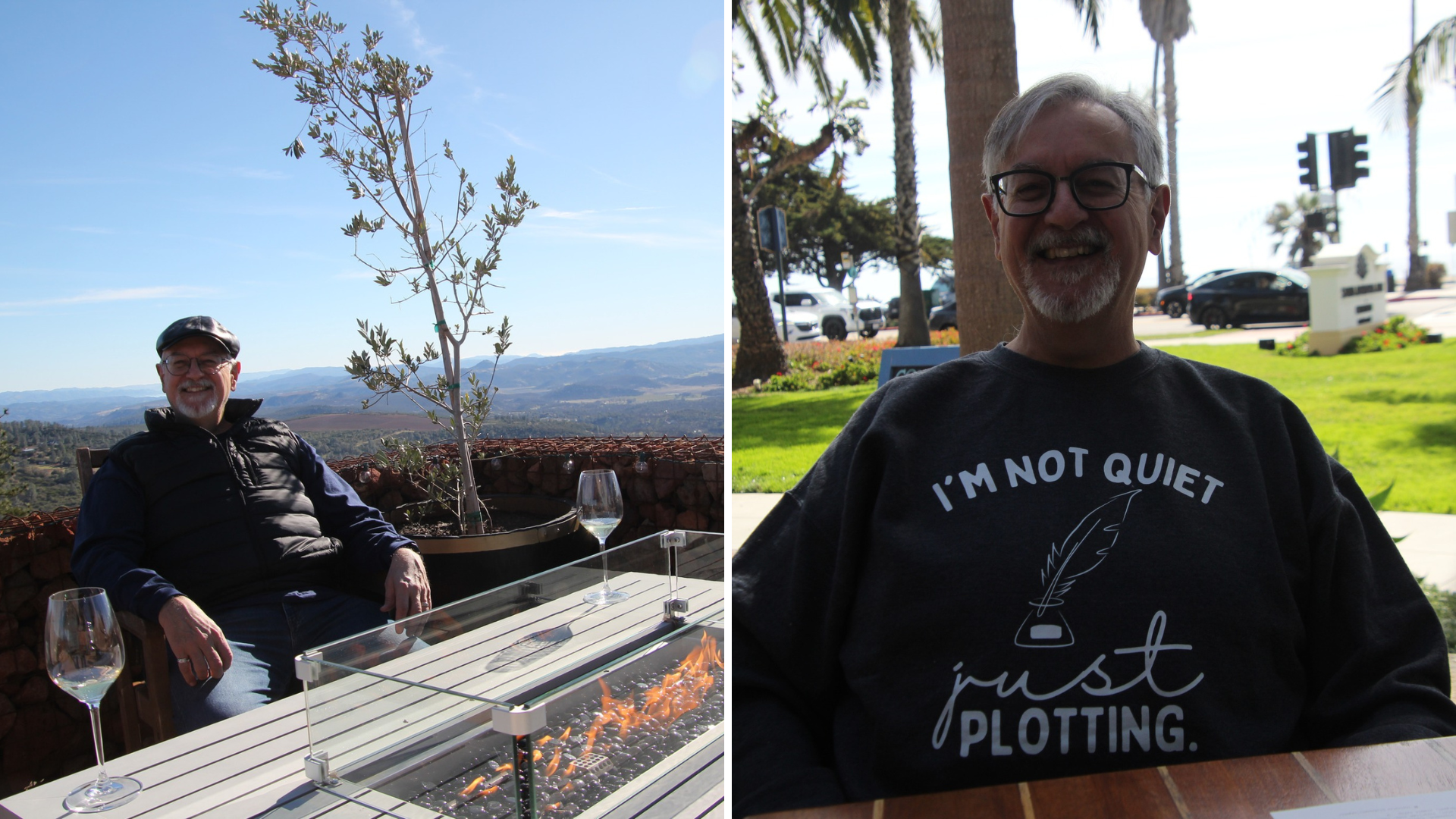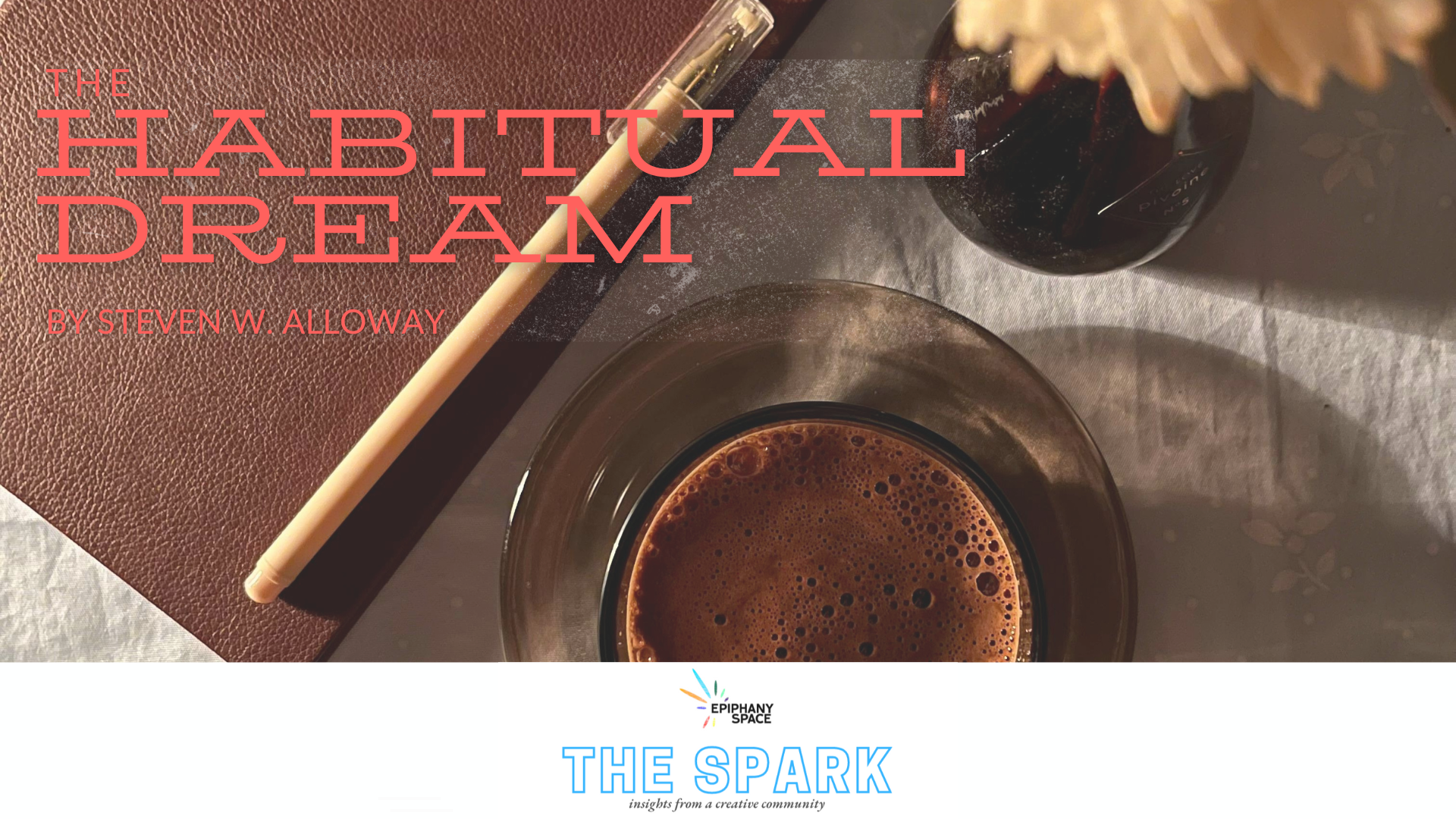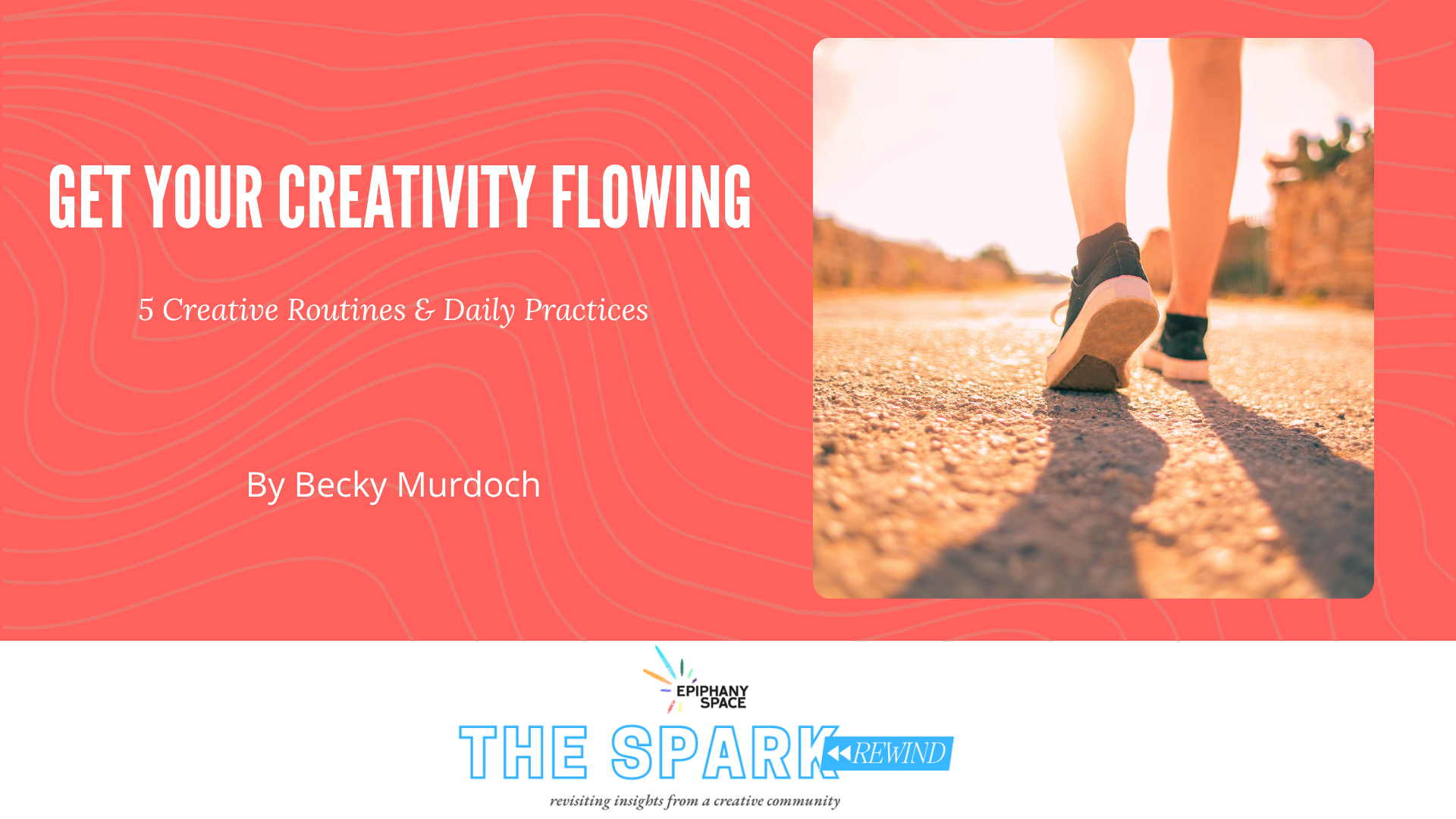Article
Dennis Ricci | Novelist | NPO Leader
Dennis Ricci
Novelist | NPO Leader

So, tell us a bit about who you are, and how you first got involved with Epiphany Space.
I’m originally from Detroit, Michigan, the son of Italian immigrants. I’ve always been entrepreneurial at heart, and writing/communicating has always been my superpower, so to speak. I discovered that the wacky world of advertising was my career ticket to express who I am to the world while in college at Wayne State University. Even though I was also good with numbers and math, and was solid that I wanted a career in business, I quickly discovered that I wasn’t cut out to be an accountant. Thank God I did!
I first met Melissa Gibson Smith ten years ago at a conference in Pennsylvania. We’re both members of Global Awakening, the organization that presented that conference, and we met during a meet-and-mingle time. Global Awakening’s membership is East Coast-centric, and when we discovered we were both from the LA area and involved in creative work, we became fast friends. Over the years, my wife and I visited Epiphany Space, spent time with her and her family both in Hollywood and at our home in Thousand Oaks. We stayed connected after she moved home to Georgia.
In November 2024, I participated in an online Arts and Creativity workshop she presented for Global Awakening. I reached out to her afterward to share some ideas about future workshops, which led to more conversation about creating a group for writers. We also talked a lot about my personal needs for a supportive creative group, and Melissa extended a personal invitation to join Epiphany Space. I’m thrilled to be connected with you!
Who inspires you? What creative people or creative works make you say, “I want to do that”?
As a novelist, I’m always inspired by great storytelling, regardless of genre. As an avid fan of long-form television, I’m particularly drawn to Aaron Sorkin’s work in both feature film and TV series like
The West Wing and
The Newsroom. He has a way with dialogue that really resonates with me, and he’s a master of building and sustaining tension. That climactic scene in
A Few Good Men! Even though Jack Nicholson’s explosive “You can’t handle the truth!” line was an ad-lib, Sorkin’s ability to ratchet up the tension in that courtroom scene made room for movie history to be made. It’s just as compelling for me today as it was the first time.
Novel-wise, my tastes were pretty eclectic in my younger years. The Bonfire of the Vanities is my all-time favorite work of satire, and I was really into historical novels after taking that class in high school. I read a lot of James Michener and James Clavell. Then along came Tom Clancy and The Hunt for Red October. I devoured every one of his Jack Ryan stories, including the 1,200 page Executive Orders. Other thriller authors I enjoy reading and am inspired by include Brad Thor, Joel C. Rosenberg, Michael Connelly, David Baldacci, and Steven James.
Of all the storytellers who move and inspire me, the one who makes me say “I want to do that” is Robert Dugoni. His versatility resonates strongly with me; he’s equally adept in legal/courtroom suspense, police procedurals, and literary/coming of age stories. The three novels that exemplify his versatility the best are
The Jury Master,
My Sister’s Grave, and
The Extraordinary Life of Sam Hell. I had the opportunity to participate in a four-day Novel Writing Intensive with Dugoni and Steven James, and it was an enormous boost to my storytelling. He saw my potential, gave me outstanding feedback, and ended up doing a cover endorsement for my first novel,
Perilous Judgment.
What are some of the challenges you’ve faced along the way, and how did you deal with them?
The first and greatest creative challenge I had to overcome was the lie that I didn’t have permission to pursue my passion to be a novelist. From the time my first fiction teacher, DiAnn Mills, awakened me to my talent as a novelist to becoming a published author nine years later, struggling with that lie, that pursuing my art and craft was a wasteful use of my time, a shirking of responsibility as a husband, father, and business owner, was rough. I’m so grateful to my wife for her support in overcoming that debilitating, limiting belief I carried for years.
The other challenge that helped me grow as a writer and storyteller was developing a thick skin. No one likes to hear that their baby isn’t perfect, but you must get feedback from other people who have walked the artistic journey ahead of you. As an author, you must make the final creative decisions, but you need a “team” of editors, beta readers, and story doctors to make your work the best it can be.
Third, you have to know when it's time to ship your work. George Lucas famously said that he didn’t finish Star Wars: A New Hope as much as he knew it was time to walk away and release it.
Are you working on anything cool or interesting right now? Anything you’d like to tell us about?
I’m working on a seven-episode fiction series that dives into the geopolitics of the AI arms race and explores what I believe is the true eternal conflict—not good vs. evil, but life as it was designed by God to be lived vs. humans’ insatiable thirst for knowledge and self-determination. The episodic form will mirror, to some extent, the runaway success of long-form television and acknowledge the effect of streaming video and binge-watching have had on how people engage with stories. I’m working with a world-class story coach who’s really on top of that.
Where do you see your creative journey taking you? What would you like to be doing, say, five years from now?
I’m blessed to be at the stage of life where I’m able to do exactly what makes me most come alive creatively—write pulse-pounding thrillers that both entertain and provoke readers to consider their own beliefs about life and what matters, and teach/encourage other writers to rise up and do their very best work, fully develop the creative genius they’re born with, and to persevere through every obstacle. Opposition builds your character as a person and an artist. It’s vital to your growth.
What advice would you give to other artists and creatives in your field? Any words of wisdom for those looking to follow in your footsteps?
Story ideas come from practically anywhere, but investment in building your craft is an absolute must. You’ve got to get your butt in the chair and put in the work. You’ve got to study the masters of the craft and focus on story craft—knowing the form, what makes a great story great. Great turns of phrase and beautiful sentences are important, but the path of transformation through adversity, served up inside a plot that takes surprising but inevitable turns in the life of your characters, is everything. Writers write, and the only way to get better is to build a solid foundation of craft, knowing there’s no limit to your artistic and craft growth except that which you put on yourself. You also need to develop a fearlessness about your work and what you put on the page. As Robert McKee taught me, write the truth. Write the truth about yourself through your characters. Write the truth of the human condition and be as circumspect as you can on “big-T” truth. Challenge your own beliefs about the world, about people, even about God, and whether he exists and how he manifests in the world. Write to discover. Be authentic with yourself, and that will come through in your work. And don’t write to be “on trend.” Culture shifts and changes so quickly now that, when writing a novel that can take several years to complete, the wave you mounted when you began writing your novel or screenplay will likely be irrelevant by the time you release your work.






